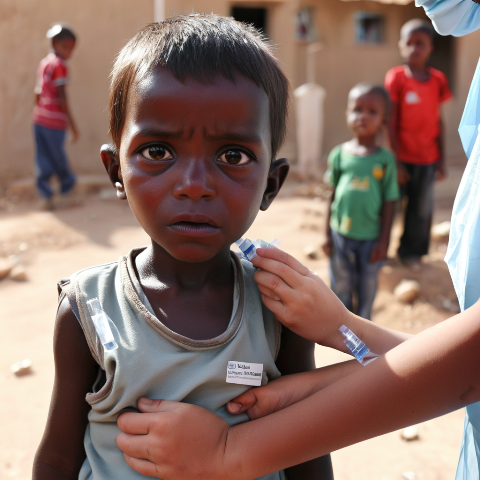The number of children who have never received routine vaccinations, known as “zero-dose” children, is alarmingly higher in conflict zones, with a rate of 22.7% compared to 7.1% globally, Save the Children reported today. The organization also highlighted that zero-dose children in African countries are double the global average, at 18.7% versus 6.9%.
This analysis of UN data precedes a significant global conference in Paris aimed at securing substantial funding for immunizations and launching an initiative to enhance vaccine manufacturing in Africa.
Save the Children emphasized the need for donors to increase funding for Gavi, the Vaccine Alliance, especially those committed to allocating 0.7% of national budgets to overseas development assistance. Through its partnership with Gavi, Save the Children aims to strengthen vaccination efforts and health services to reach zero-dose children in marginalized and hard-to-reach communities.
"Every child has the right to vaccines as part of their right to health," Save the Children asserted. Conflict zones exacerbate health disadvantages for children, with displacement disrupting access to services and spreading disease.
An example is Hadia*, a 30-year-old mother of five who fled from Khartoum to River Nile state in Sudan after conflict erupted, just two days after giving birth. She expressed fear about her children missing immunizations more than the displacement itself, aware of the severe consequences of diseases like polio, measles, and diphtheria.
Save the Children stated that increased funding for Gavi could strengthen health systems and vaccine delivery, focusing on zero-dose and under-immunized children, particularly in conflict zones and areas vulnerable to climate change. Nearly half of Gavi’s eligible countries are classified as fragile and conflict-affected states.
Inger Ashing, CEO of Save the Children International, stressed the urgency: "Every child has the right to survive, yet a shocking number are dying from preventable diseases due to lack of access to immunizations. These children have already endured unbearable experiences of conflict and displacement. It is critical to ensure no child is left behind. Governments, the private sector, and partners must prioritize children's wellbeing and fully support Gavi."
Ashing also welcomed the launch of the African Vaccine Manufacturing Accelerator (AVMA), which aims to boost vaccine production capacity in Africa. "This initiative will enable many children across the continent to be protected against preventable diseases," she added.











